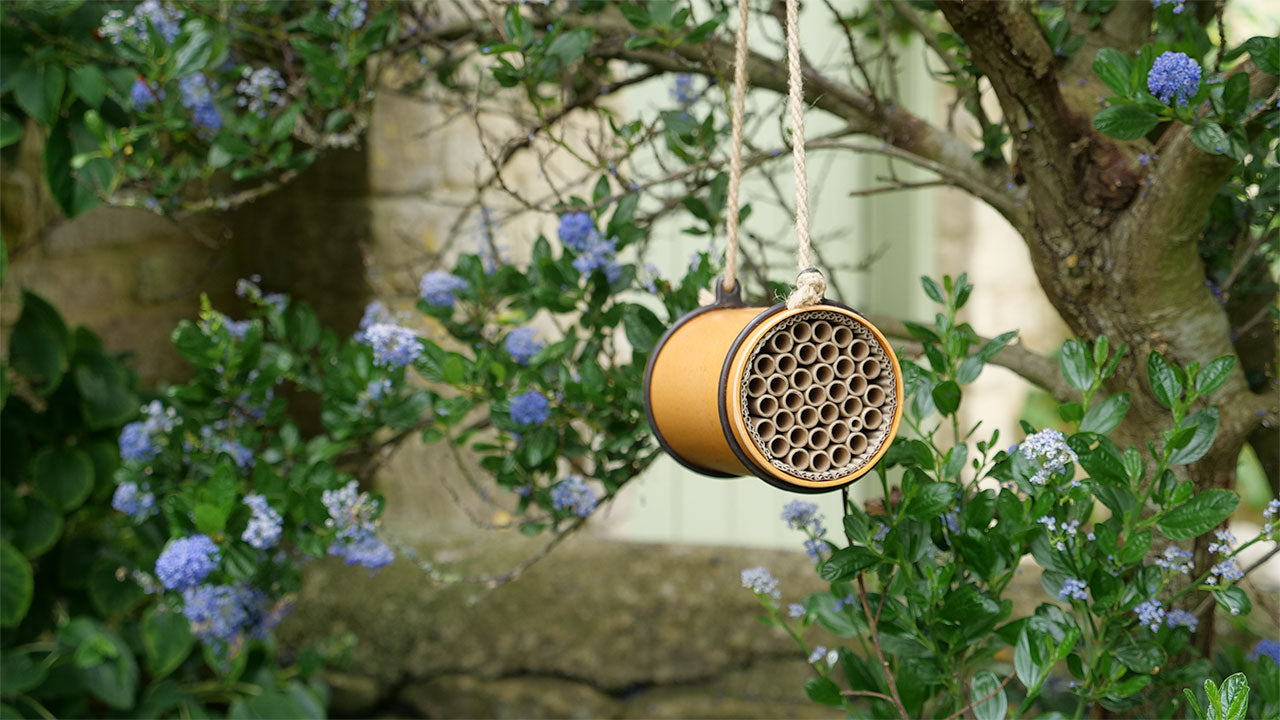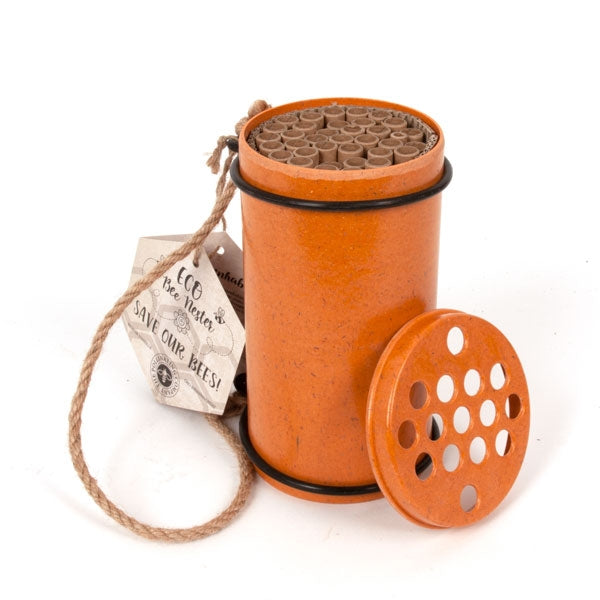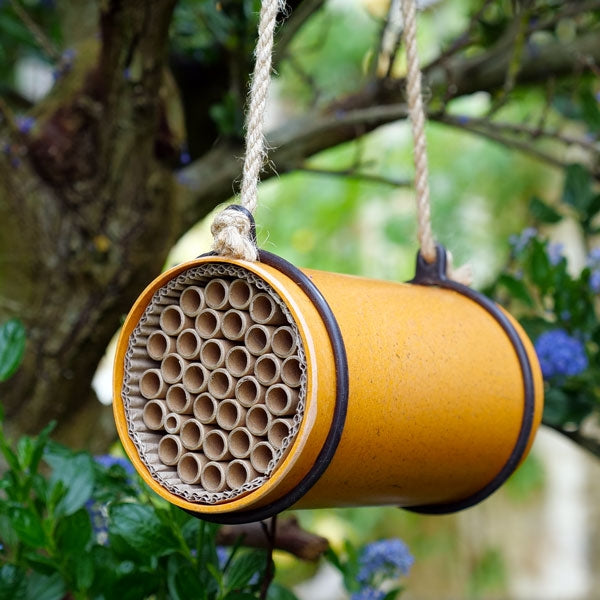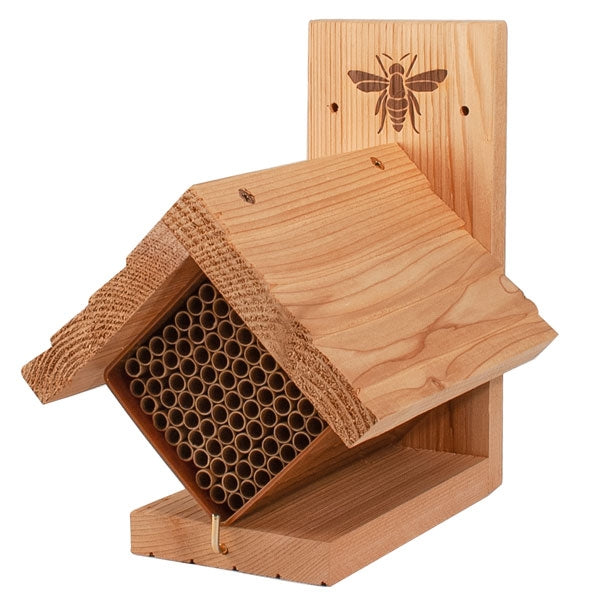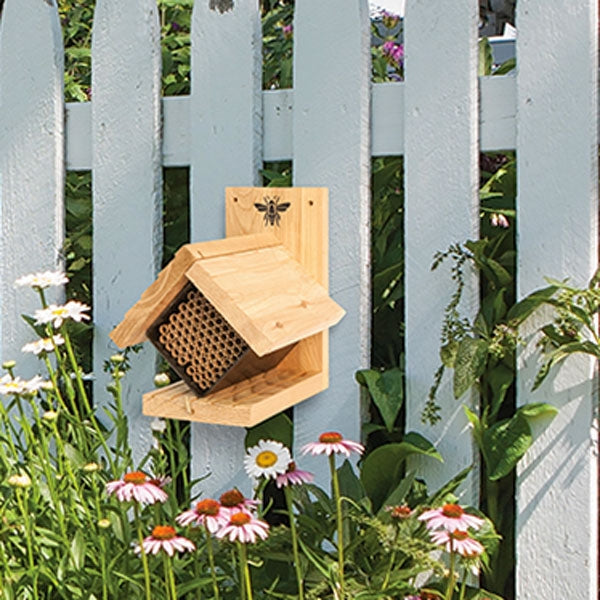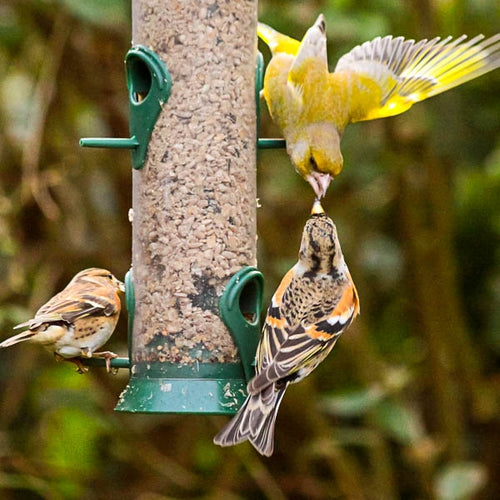-
Mason Bee Eco Nest Box
Mason Bee Eco Nest Box
- Regular price
- £19.95
- Sale price
- £19.95
- Regular price
-
- Exceptional: one of the most beneficial bee nesting products on the market
- Re-usable: plastic-free weatherproof plant fibre casing can be used year after year
- Safe and secure: a predator baffle prevents birds from eating bee larvae
-
Mason Bee Nest Box with Nesting Tubes
Mason Bee Nest Box with Nesting Tubes
- Regular price
- £29.95
- Sale price
- £29.95
- Regular price
-
- Protective: a perfect home for pollinating mason bees and other solitary bees
- Attractive: a delightful design with nesting tubes for mason bees
- Easy assembly: supplied fully assembled with approx. 94 bee nesting tubes
-
Mason Bee Tubes
Mason Bee Tubes
- Regular price
- From £8.95
- Sale price
- From £8.95
- Regular price
-
- Natural: clean-drilled wooden mason bee tubes
- Popular: mason and leafcutter bees love them
- Caring: provides a habitat for vital pollinators
-
Nooks & Crannies Insect Cabin
Nooks & Crannies Insect Cabin
- Regular price
- £8.95
- Sale price
- £8.95
- Regular price
-
- Attractive: a natural garden feature and low cost introduction to beneficial insects
- High-quality: attracts many beneficial insects including moths, ladybirds, lacewings and solitary bees.
- Essential: a must for every wildlife friendly garden
-
Nooks & Crannies Insect House
Nooks & Crannies Insect House
- Regular price
- £13.95
- Sale price
- £13.95
- Regular price
-
- Protective: sheltered cover for multiple beneficial insects
- Essential: wooden nesting tubes for leafcutter & mason bees
- Easy assembly: supplied with hanging hook and screws
-
Nooks & Crannies Insect Loft
Nooks & Crannies Insect Loft
- Regular price
- £7.95
- Sale price
- £7.95
- Regular price
-
- Attractive: a neat little habitat for many insects such as mason bees, months & ladybirds
- High-quality: can be hung from any garden tree or shrub or mounted on walls and fences
- Essential: a must for every wildlife friendly garden
-
Nooks & Crannies Insect Log
Nooks & Crannies Insect Log
- Regular price
- £6.95
- Sale price
- £6.95
- Regular price
-
- Attractive: A delightful little habitat for many insects such as mason bees, months & ladybirds
- Essential: A low cost introduction to mini beasts in the garden
- High-Quality: Can be hung from any garden tree or shrub or mounted on walls and fences
Showing 1-7 of 7 products
FAQs
Find answers to our most frequently asked questions.
If you cannot find the answer to your query within these FAQ’s please call our customer service team on free phone 0800 085 4865 between 9.00am – 5.00pm Monday to Friday and we’ll be happy to answer your questions.
Outside of office hours please compete the form on our Contact Us page and we will respond to your request within 4 hours of our return.
